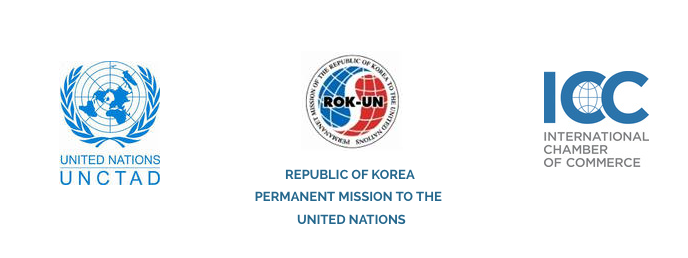The UN Conference on Trade and Development (UNCTAD), the Permanent Mission of the Republic of Korea, and the International Chamber of Commerce (ICC) convened a discussion of the multiple dimensions of inclusiveness in the 2030 Agenda for Sustainable Development.
 14 December 2015: The UN Conference on Trade and Development (UNCTAD), the Permanent Mission of the Republic of Korea, and the International Chamber of Commerce (ICC) convened a discussion of the multiple dimensions of inclusiveness in the 2030 Agenda for Sustainable Development.
14 December 2015: The UN Conference on Trade and Development (UNCTAD), the Permanent Mission of the Republic of Korea, and the International Chamber of Commerce (ICC) convened a discussion of the multiple dimensions of inclusiveness in the 2030 Agenda for Sustainable Development.
The event was moderated by Chantal Line Carpentier, Chief of UNCTAD’s New York Office, and took place on 14 December 2015, in New York, US. Carpentier noted that the event was part of a series organized by the Republic of Korea.
David Le Blanc, UN Department of Economic and Social Affairs (DESA), said the word “inclusive” is used in the five of the 17 Sustainable Development Goals (SDGs) and 22 times elsewhere in the Agenda, and numerous targets address inclusiveness at the national and international levels. He noted that other concepts in the Agenda, such as leaving no one behind and inequality, are closely connected to inclusiveness. Lakshmi Puri, UN Women, said inclusiveness is about people and equality, and is “front and center” in the 2030 Agenda, as is gender equality. She called for financial investments, and for the private sector to be accountable and responsible regarding inclusiveness.
Maureen Kline, Pirelli, outlined her company’s efforts to translate the SDGs into their work, and said mapping the supply chain is key to achieving sustainability. She noted that Pirelli is involved in the SDG Compass, which was developed by the Global Reporting Initiative (GRI), the UN Global Compact and the World Business Council for Sustainable Development (WBCSD) to support companies in aligning their strategies with the SDGs. Taffere Tesfachew, UNCTAD, highlighted the need to create jobs for inclusiveness, since “inclusiveness is not going to be solved by a transfer of income,” and noted the importance of the private sector in this regard.
Among Member States speaking during the interactive session, Nigeria said inclusiveness should address corruption at the national level, and empowerment of women and girls. The Republic of Korea said “people, justice, and dignity” are needed to achieve inclusiveness, with dignity being the ultimate goal in this regard. He also announced that Economic and Social Council (ECOSOC) President Oh Joon will hold a special conference on inequality in March 2016.[Event Agenda and Concept Note] [IISD RS Sources]